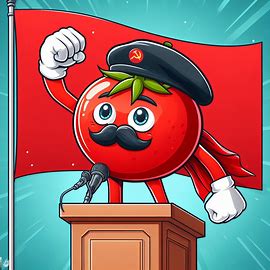I see this claim made a lot: that the Soviet Union achieved economic growth that has never been seen before or after, so threw it at some angry Redditor. They brought up Japan/ South Korea from 1950-1990 and looking into it, it seems as though they are comparable, at least when using GDP South Korea actually does a lot better than the Soviet Union. Now this leaves out rapid Industrialization which I assume is what is meant with “unparraleled economic growth” and also GDP may not be the best indicator but it’s still impressive. Of course Japan and SK were also subsidized by the US. Am I missing something? and does anyone have good sources on the growth of the Soviet Economy from 1921-1990?
This neo-liberal establishment would have us believe that, during its miracle years between the 1960s and the 1980s, Korea pursued a neo-liberal economic development strategy …
The reality, however, was very different indeed. What Korea actually did during these decades was to nurture certain new industries, selected by the government in consultation with the private sector, through tariff protection, subsidies and other forms of government support (e.g., overseas marketing information services provided by the state export agency) until they ‘grew up’ enough to withstand international competition. The government owned all the banks, so it could direct the life blood of business-credit …
The Korean government also had absolute control over scarce foreign ex- change (violation of foreign exchange controls could be punished with the death penalty). When combined with a carefully designed list of priorities in the use of foreign exchange, it ensured that hard-earned foreign currencies were used for importing vital machinery and industrial inputs. The Korean government heavily controlled foreign investment as well, welcoming it with open arms in certain sectors while shutting it out completely in others, according to the evolving national development plan …
The popular impression of Korea as a free-trade economy was created by its export success. But export success does not require free trade, as Japan and China have also shown. Korean exports in the earlier period – things like simple garments and cheap electronics-were all means to earn the hard currencies needed to pay for the advanced technologies and expensive machines that were necessary for the new, more difficult industries, which were protected through tariffs and subsidies. At the same time, tariff protection and subsidies were not there to shield industries from international competition forever, but to give them the time to absorb new technologies and establish new organizational capabilities until they could compete in the world market.
The Korean economic miracle was the result of a clever and pragmatic mixture of market incentives and state direction.
https://libgen.is/book/index.php?md5=CFFF2BEABC3F84C6C5D7EFE777A08C36
Also look what IMF/World Bank did to South Korea during 1997 Crisis. Japan meanwhile had a ‘lost decade’. The USSR and other socialist states industrialized without much involvement of foreign sector, their growth was from the Government sector. In fact, the U.S. prevented them from engaging in foreign trade with the developed countries (who had advanced technology and high income). It is (part of) the reason why Russia, despite falling off post-1991 is withstanding Western sanctions.
November 29, 1941: “How can such a primitive people manage such technical achievements in such a short time?”
August 26, 1942: “With regard to Russia, it is incontestable that Stalin has raised living standards. The Russian people were not being starved [at the time of the start of Operation Barbarossa]. Overall, we must recognize that: work- shops of the scale of the Hermann Goering Werke have been built where two years ago there were only unknown villages. We are discovering railway lines that are not on the maps.”
Both quotes from Hitler. As others mentioned, pre-WW2 the USSR grew at an unprecedented rate. This is the period that Stalin is heavily criticized for “heavy hand”, industrialization was forced because it was either that or death, the USSR was at an state of emergency and the people needed to rise up to the challenge and catch up with the already industrialized nations. Needless to say that the following USSR leaders rested on the laurels of the work done by the people under Stalin era.
Also another point is that this growth was without exploiting other nations, something that the west cannot do.



